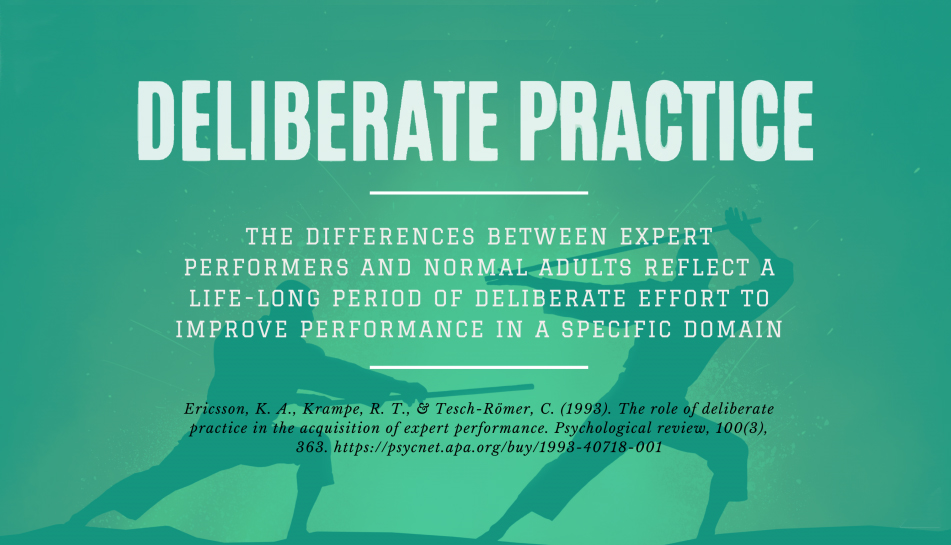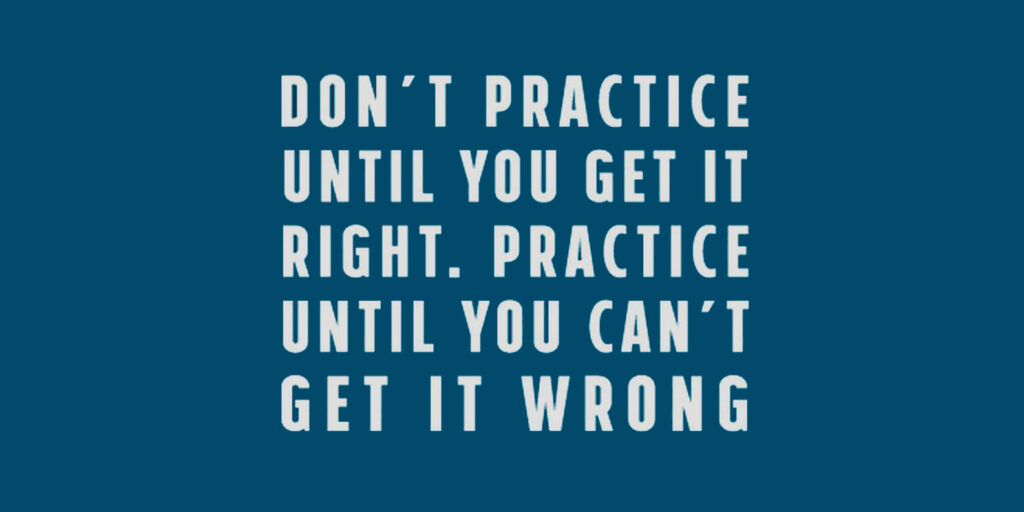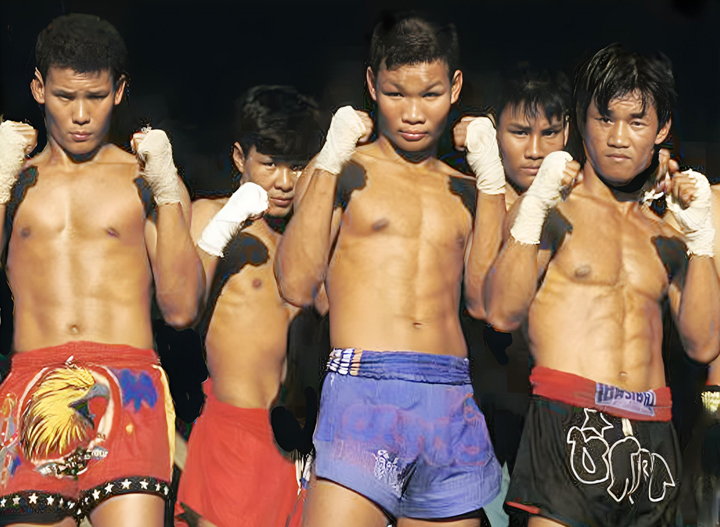
Academy Menu
Supplemental Lessons
Deliberate Practice
A Path To Lethwei Excellence

Deliberate practice is a concept popularized by psychologist Anders Ericsson that refers to a highly structured and goal-oriented approach to learning and skill improvement. Deliberate practice is not the same as rote repetition. Rote repetition or simply repeating a task will not by itself improve performance. Deliberate practice is a methodical and purposeful approach to skill development that goes beyond mere repetition. At its core, it often involves breaking down complex skills into smaller components and focusing on each component individually. By isolating specific elements, individuals can work on improving them systematically before integrating them back into the larger skill set. This approach helps prevent the development of bad habits and ensures a more efficient learning process. Unlike casual or routine training, deliberate practice demands intense concentration, specific goals, and immediate feedback. This approach challenges Lethwei practitioners to push beyond their comfort zones, to confront their weaknesses and to refine their techniques in a targeted manner.
This means the practitioner must constantly operate at the edge of their abilities, where the task is challenging but not impossible. This zone of proximal development, as described by educational psychologist Lev Vygotsky, is where optimal learning occurs. Deliberate practice involves consistently reaching into this zone to stimulate growth.
A fundamental aspect of deliberate practice is its emphasis on quality over quantity. While the traditional method to training often revolves logging hours on the field or in the gym, deliberate practice prioritizes and emphasizes efficiency and effectiveness in each training session. Deliberate practice understands that not all practice is not created equal. Its approach distinguishes between quantity and quality. It is the deliberate, mindful engagement with the training process that yields significant advancements in skill acquisition.
It is important to note that deliberate practice is not always enjoyable. Unlike casual engagement in Lethwei as a hobby or recreational activity, deliberate practice can be mentally and physically taxing. It requires discipline and a commitment to the long-term goal of improvement. Success in deliberate practice is often measured by the ability to endure and persist through the challenges and setbacks that inevitably arise.
Practitioners employing deliberate practice meticulously design their training routines, identifying specific areas of improvement and crafting exercises that address those deficiencies. Take, for example, a basketball player working on their free throws. Instead of mindlessly throwing a high volume of round kicks, a practitioner engaged in deliberate practice might focus on refining their kicking technique by analyzing and adjusting the trajectory of the leg, determining the optimum bend of the leg, and timing of the components of the kick’s kinetic chain. This intentional, analytical approach maximizes the impact of each practice session.

A crucial element of deliberate practice is the role of feedback. Immediate, constructive feedback is indispensable for Lethwei practitioners to correct errors and refine their techniques. Experienced teachers and coaches play a pivotal role in this process, providing insightful observations that can guide practitioners toward improvement. The role of expert guidance in deliberate practice cannot be overstated. Working with a coach or mentor who possesses expertise in the relevant domain is instrumental in providing accurate feedback and guiding the learning process. A knowledgeable guide can offer insights, correct mistakes, and provide a roadmap for improvement, accelerating the journey toward mastery.
More nuanced, detailed, and explicit feedback may be facilitated through the use of advancements in technology such as video analysis, biomechanical sensors, and performance metrics. This integration of feedback data allows practitioners and instructors to gain a deeper understanding of the individual’s strengths and weaknesses, promoting a more informed and strategic approach to their training.
The application of deliberate practice in Lethwei extends beyond the physical aspects of training. Mental resilience and strategic thinking are integral components of training success. Practitioners engage in deliberate practice for their cognitive skills, honing tactical and strategic decision-making processes and cultivating a heightened awareness of fight subtleties. This mental rehearsal, combined with physical training, creates a comprehensive approach that enhances overall performance.
A prime example of deliberate practice’s impact on sports is evident in the realm of elite fighter. Consider the meticulous preparation of Olympic boxers who dedicate years to refining their techniques and pushing the boundaries of human performance. Each training session is a deliberate, purposeful endeavor aimed at chiseling away imperfections and pushing the limits of their capabilities.
Deliberate practice represents a paradigm shift in sports training, emphasizing purposeful and focused efforts to achieve excellence. By breaking down skills, emphasizing quality over quantity, and incorporating immediate feedback, practitioners can accelerate their growth and reach new heights in their performance. As the sports landscape continues to evolve, the application of deliberate practice stands as a testament to the power of intentional training in unlocking the full potential of practitioners.
Thut Ti Lethwei Global Academy Disclaimer
The information provided on Thut Ti Lethwei Global Academy (lethwei.net) is intended for general informational and educational purposes only. The content on this Website is not intended as a substitute for instruction or direction from a professional combat sports coach or martial arts instructor. The content is also not intended as a substitute for medical direction, advice, diagnosis, or treatment from a health care professional. Always seek the advice of your physician or other qualified health provider with any questions you may have regarding a medical condition or th e safety of participating in any physical activity.
Not Medical Advice: The content on this Website is not intended to be a substitute for professional medical advice, diagnosis, or treatment. Always seek the advice of your physician or other qualified health provider with any questions you may have regarding a medical condition.
Consult a Professional: It is essential to consult with a healthcare professional before starting any new activity program, diet, or exercise routine. Your individual training goals should be discussed with a qualified healthcare provider who can provide personalized recommendations.
Assumption of Risk: Participation in physical activity and exercise carries inherent risks, and by using the information provided on this Website, you acknowledge and voluntarily assume these risks. Always exercise caution and common sense when engaging in physical activities.
Accuracy of Information: While we strive to provide accurate and up-to-date information, the content on this Website may not always reflect the most current research or medical guidelines. We do not guarantee the accuracy, completeness, or timeliness of the information presented.
Responsibility: You are responsible for your health and safety when engaging in any combat sport, martial art, or fitness program, individual exercise, or dietary practice discussed on this Website. Thut Ti Lethwei Global Academy, its authors, contributors, and affiliates disclaim any liability for any injury, loss, or damage incurred as a result of the use or reliance on the information provided on this Website.
Changes to Disclaimer: Thut Ti Lethwei Global Academy reserves the right to modify or update this disclaimer at any time without prior notice. It is your responsibility to review this disclaimer periodically for any changes.
By using Thut Ti Lethwei Global Academy website, you agree to the terms of this disclaimer. If you do not agree with these terms, please refrain from using this website.
